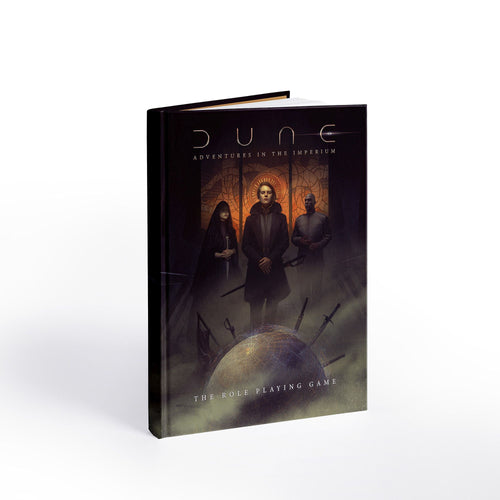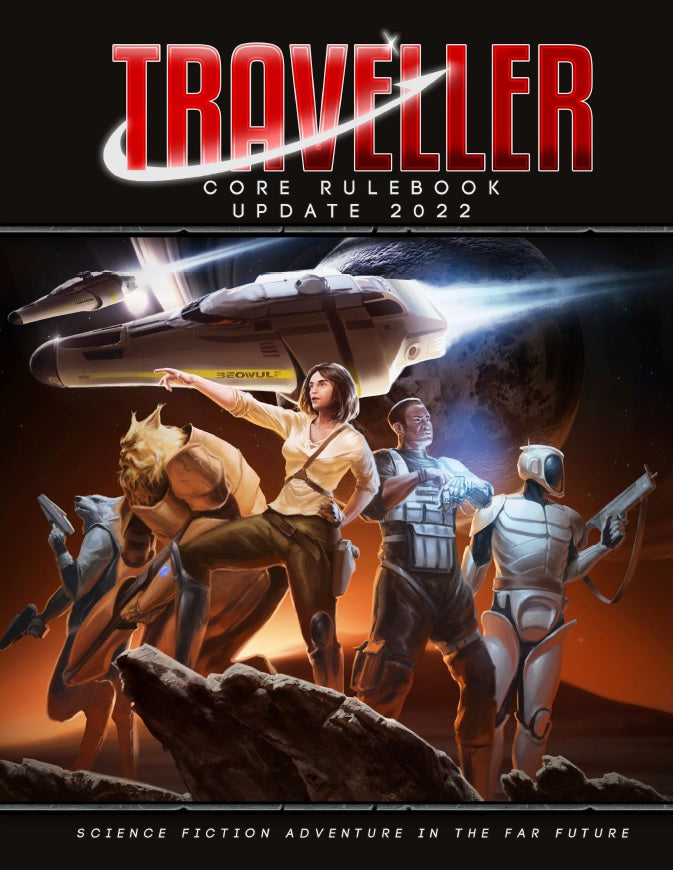Dune: Adventures in the Imperium Science Fiction; Political; Resource Management; Narrative-Driven; Character Customization; Tactical Combat; Interstellar Travel
Dune: Adventures in the Imperium is a tabletop roleplaying game that plunges players into the intricate political landscape of Frank Herbert's Dune universe. Using the 2d20 system, it emphasizes narrative-driven gameplay, resource management, and character customization within the context of interstellar feudalism. Players navigate deadly duels, political machinations, and the acquisition of power in a universe where a blade can alter destinies.
Theme and Setting
The game is steeped in the rich lore of Dune, a science fiction universe defined by feudal politics, limited resources, and powerful organizations vying for control. The setting spans across interstellar space, with a focus on the desert planet Arrakis, the sole source of the spice melange. Melange is vital for interstellar travel and prescient abilities, making it the most valuable resource in the Imperium.
Players engage in the complex world of noble Houses, such as Atreides, Harkonnen and Corrino, each with unique strengths, rivalries, and agendas. The Imperium features deadly duels, cut-throat politics, and mysterious abilities. Characters navigate this landscape as Mentats, Swordmasters, Spies, Bene Gesserit Sisters, Devious Advisors, or even desert Fremen.
Core Mechanics and Rules
Dune: Adventures in the Imperium utilizes the 2d20 system, developed by Modiphius Entertainment. Core mechanics revolve around rolling two twenty-sided dice (2d20) and attempting to roll under a target number determined by a character's skills and attributes. Additional dice can be added for increased chances of success, but this can also generate Threat, a resource the GM uses to complicate the players' lives.
A key element is resource management, where players must strategically allocate assets like influence, wealth, and troops. Tactical combat is also central, emphasizing maneuver, strategy, and the deadly precision of melee combat over ranged weaponry due to the prevalence of personal energy shields. The game promotes narrative-driven gameplay, enabling players to shape the story through their choices and actions, influencing the political landscape of the Imperium.
What Makes It Unique
Several factors distinguish Dune: Adventures in the Imperium from other tabletop RPGs. Its focus on House creation allows players to build and manage their own noble lineage, fostering a sense of investment in the game world. Political intrigue takes center stage, with characters navigating complex alliances and betrayals. The game also incorporates 'Truths of the Dune setting, from prescience to the nature of spice addiction'. The 2d20 system itself, with its 'momentum' and 'threat' mechanics, also creates a unique flow of back-and-forth narrative control between players and game masters.
Target Audience and Player Experience
The game is tailored for players who enjoy science fiction, political strategy, and narrative-driven experiences. It appeals to those familiar with the Dune universe and welcomes newcomers, providing a primer on the key players and aspects of the setting. The intended player experience is one of immersion in a world of intrigue, where choices have significant consequences. The game allows building a House, carving a place in the universe, or rebuilding an ancient lineage and fighting for the Imperial throne. Players can expect to engage in elaborate schemes, manage resources effectively, and participate in tactical combat, all while shaping their characters into Mentats, Swordmasters, Spies, Bene Gesserit Sisters, Devious Advisors, or even desert Fremen.



